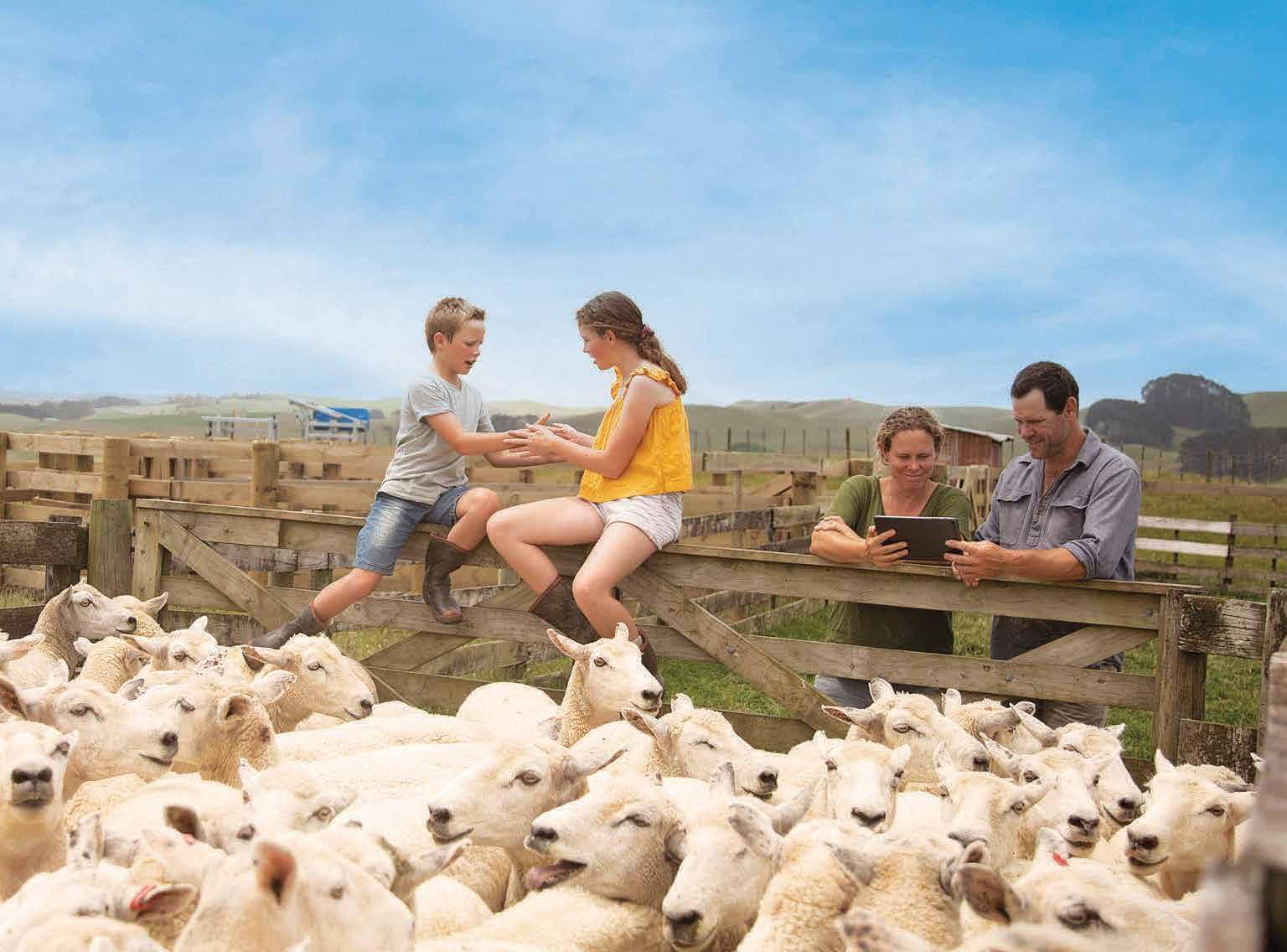






























































































THE HILLS are like melting ice-cream.
That’s how the North Island’s East Coast is being described, with farmers – once again – having to deal with yet another rain event hitting the region. It’s back to square one for many farmers, who watched helplessly as the torrential rain knocked out fences and farm tracks that have just been repaired following Cyclone Gabrielle.
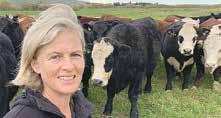
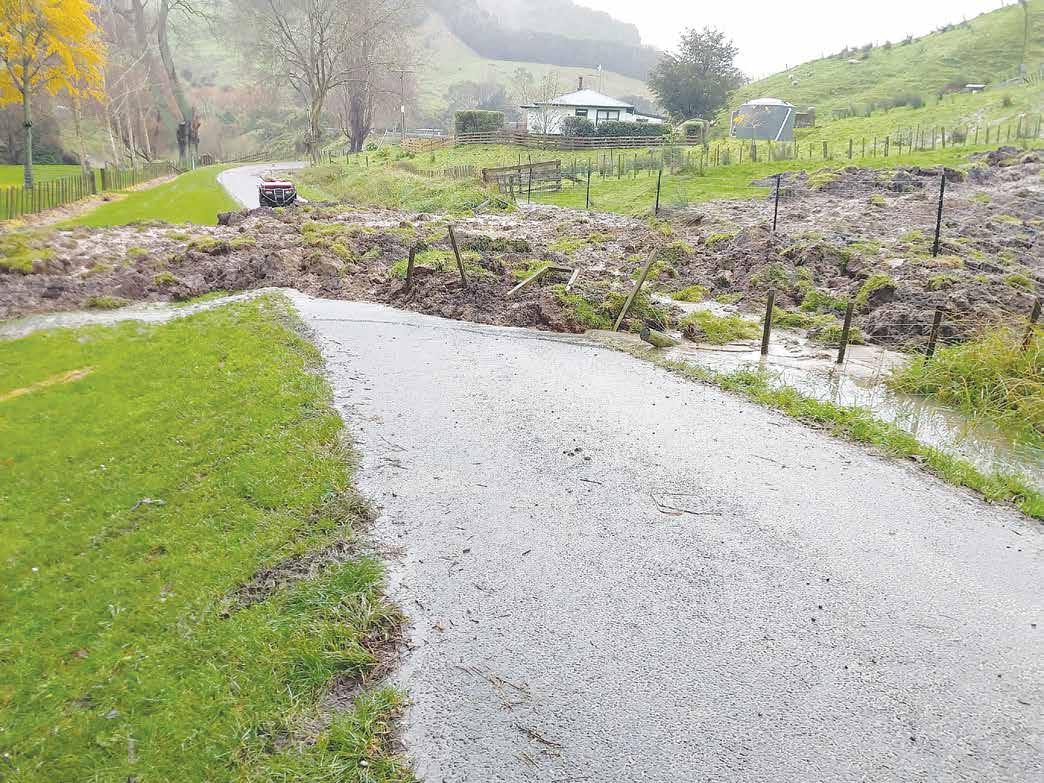
Federated Farmers meat and wool chair and Gisborne sheep farmer
Toby Williams told Rural News that they have endured five years of severe rain storms. He says over the last 18 months in particular, the weather has been unrelenting.
“The region is sodden, the hills are moving, the farm tracks are cut and the roads are munted. It’s demoralising to be a farmer here and it’s equally demoralising to be an East Coaster.”
Williams says there’s a mix of small and large slips and reckons it may take up to 15 years to repair some of the larger ones. He says the ground is so saturated that they are seeing some
slow-moving slips, which keep on going and continually cut farm tracks.
Williams and other farmers are having a great deal of difficulty getting around their properties to muster stock because of slips and damaged tracks.
This latest event has played havoc with what is a major event on the East Coast – the annual bull sales. These have been postponed for a week, but there is still no guarantee that they will go ahead within that timeframe, given the state of roads in the region.

Williams, whose brother is a bull
breeder, had to cancel a trip to the USA because of the postponement. He says the roads in the region are in a fragile state, but are so important for livestock farmers and horticulturalists to get their produce to market.
“The roading crews are doing an amazing job – they and the linesmen are the unsung heroes.”
Williams says there have been power outages but generators have been brought in to keep things going until power is restored. He says there have been some communication problems, but notes that there are a
lot more Starlinks in the region now, which has alleviated these issues.
Williams says Federated Farmers has been pressuring the Government to step in and ease the consenting process so that roads can be repaired faster. He says, while they may be listening, they appear more focused on passing some of their key pieces of legislation.

“There are only five sitting weeks left in Parliament and the reality is that once they move into election mode, nothing much gets done and we get forgotten about,” he says.

As a 100% NZ-owned mutual, we’re not here for the bank accounts of overseas owners. We’re here for the New Zealand farmers and growers who are our members.
Ask around about us, or give us call on 0800 366 466.
We’re here for the good of the country.
TRAIN MORE doctors locally for the rural sector otherwise the regions will face an acute shortage of general practitioners.
This warning comes from University of Waikato Professor of Population Health Dr Ross Lawrenson, who is leading the push for a third medical school in the country.
Lawrenson told Rural News that 20% of our GPs are over 65 and are in the pipeline to retire, while there are others who are nearing 65 and planning to retire. “And we’re also losing doctors under 50 who are leaving general practice,” he says.
Lawrenson believes the rural sector will be hit hard unless more doctors are trained to work in the regions.
“We know that our rural doctor tends to be older, they tend to be owner/operator, so they own the practice and find it difficult to find someone to takeover that practice,” he says.
Doctors train either to be a general practitioner or a specialist. Lawrenson says these days, more opt for specialist roles in urban centres.
“In my day, 50% doctors after they finished training went into general practice,” he says.
Right now, there are 4000 GPs and 5000 specialist doctors in New Zealand.
Lawrenson says this means we need half of our output from medical schools to go into general practice.
“But at the moment only 20% go into general practice,” he says. “The terms and conditions you can get in the hospitals are much more secure than running your own business in a rural community.”
Lawrenson says to provide good care, there should be a doctor to every
1000 patients. But in some rural communities, there is only one doctor for every 5000 patients.
“This means you can only deal with the urgent cases coming through the door and you can’t do the preventative health care that we want our GPs to do.”
While visiting the Fieldays last month, Lawrenson says he heard stories daily about how general practices are struggling to find New Zealandtrained doctors to work in regional or rural essential family doctor services.


Lawrenson says this is why a third
medical school that helps meet current and future workforce needs, and that attracts students from a wider range of backgrounds, needs to be established at the University of Waikato.
Lawrenson says the university’s research shows that a medical school in the regions would better support graduates to choose to remain in the regions and that is one of the main reasons he is advocating for the government to support a medical school at Waikato.
He says the university would establish the New Zealand Graduate Entry
Medical School (NZGEMS), which is based on successful international models of community-engaged graduate entry-only medical schools. It would select up to 160 students who have already completed a three-year undergraduate degree and provide them with four years of intensive, practical medical education.
“Certainly, the farmers and rural folk I spoke with during Fieldays agree that it makes sense to establish a medical school in the regions focused on producing doctors for general practice in our regions.”
peterb@ruralnews.co.nz

BRITAIN’S TRADE
Envoy to NZ says having a free trade agreement is great, but there is no point in having it if it’s not “actioned”.
David Mundell has just been on a two week trip to NZ with the main objective of promoting the NZ/UK FTA, which came into force at the end of last month. As part of his trip, Mundell had talks with business people in the South Island, attended the prestigious Ahuwhenua Awards dinner and was at Fieldays meeting with NZ politicians, government officials and business leaders.
He told Rural News that this, his third visit, was particularly timely and provided an excellent opportunity to promote the benefits of the FTA.
SIXTY-YEAR-OLD DAVID Mundell, a lawyer by background, has been a Scottish politician since 1999.
He served as Secretary of State for Scotland from 2015 until 2019 in the David Cameron and Theresa May governments. However, he ended up being sacked by Boris Johnson in 2019.
His main role is a Member of Parliament and the role of Trade Envoy is an additional job, which depending on circumstances, can take varying amounts of time. During Covid, this has meant working some odd hours on Zoom calls, which he admits had its moments.
However, this trip has enabled Mundell to get around NZ and meet people in person and get a good feel for the relationship.
As part of this promotion, the British High Commission staged a special seminar at Fieldays, which was well attended and was the subject of much positive feedback.
“This is widely acknowledged as a gold standard agreement,” he says. “So, my role is to help raise the awareness of the FTA both in Britain and in NZ.”
Mundell says his role is to get out and about and identify and talk to businesses who could benefit from the FTA. He admits there is work to do in the UK and says the challenge is to break through some of the less than positive ‘noise’ around the agreement.
He is working closely with the UK department of Trade in this regard.
Mundell says, as well as promoting the FTA to UK companies, he is also keen to sell the good news about the FTA to NZ companies as well.

The UK/NZ FTA is in some ways back to square one for the two countries. Britain’s entry into the then EEC in 1973 saw NZ forced to quickly diversify and find new markets for its primary products. Now the relation-
ship is refreshed with the advent of the FTA. Mundell says it is a first class trade agreement in every respect with the removal of trade barriers and tariffs, but it goes further than that.
“It is also an agreement based on shared values, a commitment
to the rule of law and a way of doing business,” he says. “Importantly, it is underpinned by that relationship of trust over many years which bodes well for the future.”
One challenge that Mundell faces in the UK is the historic opposition by UK farmers to

NZ lamb entering their market, allegedly at their expense. He says the reality is that when NZ had a sheepmeat quota with the EU prior to Brexit, NZ never fully filled that quota.
“To suggest that the UK would be swamped with NZ lamb is not credible and it’s not going to happen,” he explains.
“I think the real opportunity for UK farmers will come from the fact that with counter seasonality they can work with NZ farmers to provide product year-round in the supermarkets. That’s the real opportunity.”
Mundell adds that the other challenge is just encouraging more young people in the UK to eat more lamb.
ALLIANCE GROUP and in-market Chinese partner Grand Farm have committed to a significant expansion of the co-operative’s grass-fed lamb, mutton, beef and venison across China.
The companies, which have been partners in China for almost 25 years, signed a memorandum of understanding (MoU) in Beijing as part of Prime Minister Chris Hipkins recent visit to that country.
Alliance’s general manager sales, Shane Kingston, who is part of the PM’s business delegation to China, signed the MoU alongside Grand Farm president Mr Xibin Chen.
“This agreement marks a new phase in the long-standing partnership between Alliance and Grand Farm, Chi-




na’s largest importer of sheep meat,” Kingston says. “It reflects our shared ambition for Grand Farm and Alliance to be the leading red meat provider in China. “We look forward to introducing Pure South, Silere, Lumina and Handpicked product ranges to a broader base of Chinese consumers across multiple channels and strengthening the brand presence and value creation from our premium portfolios.”
Alliance Group celebrates its 75th anniversary this year, while 2024 will also mark the 25th year of the co-operative’s relationship with Grand Farm. The company has been working in China since the mid-1990s and is the largest exporter of New Zealand lamb to the country.
200 litres specially designed for break-feeding. They can be towed when full and also can reel in metres of alkathene.

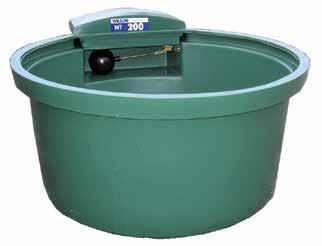

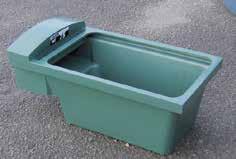
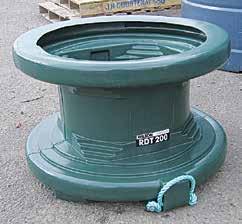

IN A reversal of its previous statements, the Manuka Charitable Trust (MCT) has announced that it will not be appealing the New Zealand Intellectual Property Office’s (IPONZ) ruling that New Zealand has no exclusive claims to the term manuka honey.
Australian Manuka Honey Association (AMHA) chair Dr Ben McKee has welcomed the ‘renewed sensibility’ of the NZ sector and expressed hope for collaboration in the future.
“[Australian manuka] has little appetite to expend more money fighting legal battles for little gain for either part,” he told Rural News. “There is more to be gained in working together, alongside one
another, than the current path of driving division between the only two native manuka honey producers in the world.”

Nevertheless, MCT Chair Pita Tapene says it and the wider indus-
try remained ‘fully committed’ to protecting the term Mānuka Honey.
“We’ve decided not to appeal on the technicalities around this decision, but this is far from the end of our determination
to achieve protection in Aotearoa and around the world,” he says.

“We have an irrefutable role as kaitiaki (guardians) to protect our reo Maori, the mana, mauri, and value of our
taonga species, including Mānuka on behalf of all New Zealanders and consumers who demand and value authenticity. We are considering our next steps and will provide further updates.”
These statements, in conjunction with previous legal challenges, mean that McKee and others remain cautious.
“We in Australia are not the enemy and pose little threat to the market power and size of the NZ Manuka industry,” McKee adds. “We are all beekeepers; we are all lovers of bees and honey.”
Tom Walters, chief executive of the Maori Research Institute and former United Manuka Factor Honey Association (UMFHA) member has been critical of the New Zealand manuka industry’s claims and has accused it of co-opting Maori heritage for commercial gain.
“If the New Zealand industry remains adamant that Maori are being deprived of their IP rights and royalties, then

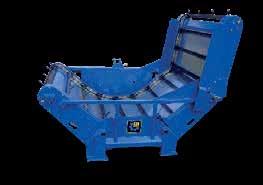

I suggest they collaborate with proactive Maori in the industry and fund the project themselves,” he says. “This case was never about Maori; it has been about a selective number of New Zealanders claiming Manuka to contribute to their corporate greed.”

In its statement, MCT says there was a lack of recognition of indigenous rights in intellectual property regimes in New Zealand and internationally, which was previously attributed to the results of the IPONZ ruling on manuka honey.

Under the recent FTA with the EU, manuka honey is given protected status under its provisions of “the promotion or promotion of the rights, interests, duties and responsibilities of Maori”.
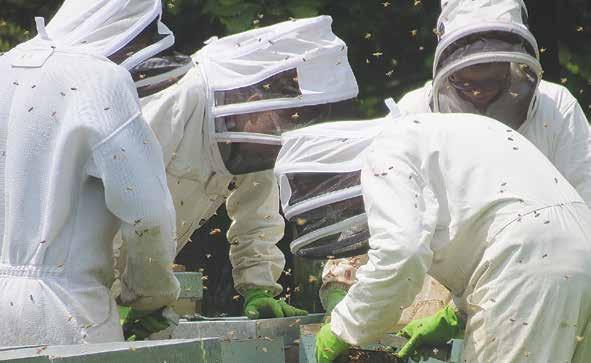
A GREEN hydrogen project that has the potential to decarbonise the heavy transport sector has been caught up in court action initiated by Greenpeace.
Fertiliser co-operative Ballance, which has poured $70 million into the Taranaki project since 2019, says legal challenges of the past 24 months have been frustrating.
Outgoing Ballance chief executive Mark Wynne accuses Greenpeace of employing “lawfare” to block the project, which he says will help reduce carbon emissions in New Zealand.

In 2019, Ballance set up the project to build four wind turbines and has consent for 5MW of electrolysis for green hydrogen production and a hydrogen refuelling station. The turbines will supply renewable electricity directly to Ballance’s Kapuni site and electricity will also be used to produce hydrogen by electrolysis – splitting water into oxygen for release into the atmo-
sphere and hydrogen to make ammonia which will then be used to make green urea at the Kapuni plant.
The zero-emission hydrogen supply will also be used to replace imported diesel used for heavy transport under a project the fertiliser co-op has underway with local company, Hiringa Energy. Ballance currently uses diesel trucks to cart fertiliser up and down the country.
But the project stalled after Greenpeace and one local iwi appealed against the consent granted to Ballance in the High Court. However, 11 months ago, the appeal was dismissed.
Greenpeace then went to the Court of Appeal, where a hearing was held in May and a decision is expected soon.
Wynne says they are hopeful of a positive outcome in the coming months.
“It’s frustrating because ours was one of the first projects in the world.
“But here we are over two years later still
stuck in the legal system. Meanwhile, in Australia, which had no projects at the time, have now got 112 active projects in vari-
ous stages of implementation,” he adds.
“I look at this and say if we are trying to save the planet through decar-
bonisation, you cannot spend two years and millions of dollars locked up in what I call lawfare.”
Wynne cannot under-

stand why Greenpeace is blocking the development of green hydrogen in NZ when it supports green hydrogen worldwide.
Greenpeace spokesperson Amanda Larsson told Rural News that it supports the use of green hydrogen for heavy transport fuel.

“The trouble is that Hiringa and Ballance intend to use the hydrogen from this project to make urea fertiliser. Urea is an agri-chemical that pollutes the climate, rivers and drinking water. It doesn’t matter if you make it from fossil fuels or green hydrogen, urea still causes all that pollution once it’s applied to the land,” Larsson claims.
Hiringa Energy chair Cathy Clennett says the wider debate about the use of fertiliser to keep New Zealand’s pastures productive does not belong in a court hearing about wind turbines creating renewable energy for producing hydrogen.



“Greenpeace has failed its supporter base by failing to engage and properly inform itself about this renewable energy and green hydrogen project, or even worse, distorting the facts.”
@rural_news

$366 million in 2010 to $193m in 2022.
NEW ZEALAND must evolve its trade strategy to capture more value from existing markets if the country is to increase exports.
That’s according to the latest edition of the biennial Barriers to International Trade report, published by the Meat Industry Association of New Zealand (MIA) and Beef + Lamb New Zealand (B+LNZ), which shows that New Zealand’s free trade agreements have reduced the level of red meat tariffs from
Red meat farmers and producers generated almost $12b in export earnings in 2022. New Zealand’s second biggest goods exporter, the industry employs 92,000 people, or 5% of total national employment.

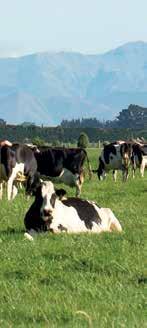

However, between 2021 and 2022 there was a 22% uptick in red meat tariffs due to New Zealand exporting more products to markets with high tariff rates.
MIA chief executive Sirma Karapeeva says that for decades New Zealand
had been successful in securing FTAs in lucrative markets in Asia and further afield.
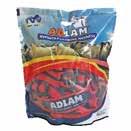
“But the world is

FIELDAYS IS the place to go for a bargain, but whoever took this unit home was taking the proverbial.
Rotowiper reports that this Rotocart was stolen off their site at Mystery Creek as the last of the crowd was exiting after 5pm on Friday June 16.

Fieldays were notified and Police have reviewed security footage in which the thief can be seen brazenly wheeling the cart towards the carpark. If you think you know who took it, let us know on editor@ruralnews.co.nz!

changing and the international landscape is now marked by greater protectionism, geopolitical tensions and economic volatility in the wake of the pandemic,” she says.
“We need to ensure that our trade strategy is responsive to this changing environment and a central part of this is ensuring that we get the maximum value out of the FTAs we already have
in place.”
Karapeeva adds that this work must also include a strong focus on non-tariff measures that apply beyond the border. The report shows that NZ’s red meat sector faces 117% more nontariff measures than the world average, adding $1.5 billion in yearly costs.
“Some of these nontariff measures work in our favour because of
the quality of our products and systems such as food safety standards. But other technical barriers to trade impose $370 million in administrative costs that provide little consumer benefit.”

B+LNZ chief executive Sam McIvor says these barriers are real concerns that need to be prioritised as part of New Zealand’s trade strategy.

“With on-farm inflation almost double general CPI (consumer price index) and average farm profits in the sheep and beef sector forecast to fall 30% this year, tackling tariff and non-tariff barriers requires government-to-government engagement,” he explains




“That is why we are calling for it to top the trade priority list… the development of robust, science-based standards is a key strategy to tack-
ling barriers to trade.”
McIvor adds that sustainability requirements are increasingly being placed on imports into key markets. He says while New Zealand’s farming practices are not the focus of these new regulations, beef and sheepmeat risks being unduly impacted by these barriers to trade. McIvor says ensuring that New Zealand farmers’ sustainability credentials are well understood by government officials in key markets is critical.
“New Zealand has invested significantly in establishing a framework of trade agreements and seen great success in tariff reductions. But as the economy starts facing headwinds, it is time to fully leverage all aspects of these agreements.”
@rural_news facebook





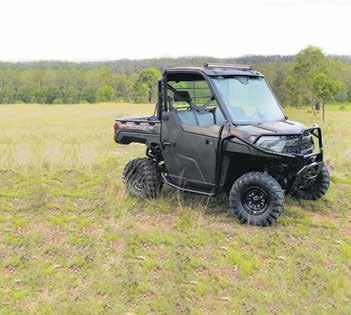
years ago, this now has to change to meet such requirements.
NEW ZEALAND’S farm production systems are under close scrutiny from countries buying primary products from us.

Silver Fern Farms (SFF) chief executive
Simon Limmer told Rural News that NZ’s trade negotiators have told him this. He claims these issues are now top of mind when countries are looking to negotiate trade agreements with us.
Limmer says this is something that companies such as SFF have to take very seriously. He adds that while it is something that wasn’t so important some
Limmer believes NZ already has a very good reputation as a high quality food producer and the issue of food provenance is something that consumers are looking for. He says, above all, the taste of the food must be good.

“Food security is still big in China. The integrity around how it’s grown, the production system, where the animal came from, did it have a good life – all those things are becoming increasing important,” he told Rural News
“The consumer is interested in knowing
about the social and environmental impacts of a product. That suits us because we are in a good shape we just have to
keep progressing.”
Limmer says at present there is much talk about the slowness of the Chinese market to
bounce back from the Covid pandemic – a situation which is causing some consternation among primary exporters.
He says both China and the USA are performing slower than expected. Limmer believes that in the case of the US market, the economic pressure is having an effect and there is a “confidence thing” in the market.
But Limmer says while it’s quiet now, he believes in both cases there are good signs of things picking up in the next or later quarter.
He bases this on the fact that there is still an underlying demand for good NZ protein.
AT THIS year’s Fieldays, there was a lot of talk about the opportunities that may open up as a result of the UK/NZ FTA, which is now in force.
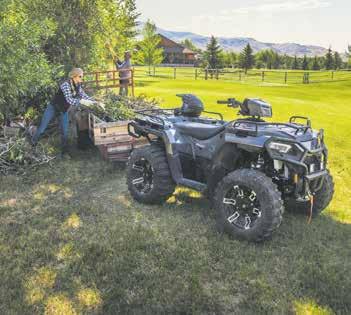
However, Limmer says the European markets are tougher for SFF because while they open up access for sheepmeat it’s not so much for beef. He says this is especially the case in the EU, which is a strong producer of grass fed beef.
“Those markets are flat and the UK in particular with their inflationary impact and interests costs is seeing consumers slow to come through what’s been quite a tough period of time.”
Limmer says while the red meat markets are flat at the moment, it’s important to remember that prior to this NZ farmers had a couple of good years and at one stage the farm gate price for lamb was 20% above the five year average. At the same time, processors invested heavily back into their businesses.
Right now, he says, with lower market prices and inflationary pressures, farmers don’t have the ability to make major investments, but he says this will change.
ALLIANCE GROUP is lifting processing capacity by 24% ahead of an expected increase in bobby calf volumes.
The co-operative says processing capacity at its Levin, Nelson, Smithfield (Timaru) and Lorneville (Invercargill) plants will be boosted in the coming weeks.
This follows a decision last year by Fonterra to update its supply conditions and require all non-replacement calves to enter a value stream.
From mid-June this year, the dairy co-operative wants all non-replacement calves to go as dairy beef finishing, veal production or the pet food industry.
Fonterra’s new rules around bobby calves stem from criticisms around the handling of bobby calves on farms. Last year the co-op told its farmer suppliers that as part of its strategic choice to ‘lead in sustainability’, it places a strong emphasis on calf wellbeing and a big part of this is ensuring that all dairy calves have a useful life.
Murray Behrent, Alliance interim general manager livestock and shareholder services, says the meat processor is
committed to supporting farmers, particularly during a potential pinchpoint when bobby calf processing coincides with lamb processing.
“There will be significantly more bobby calves requiring processing at plants but we are confident the additional capacity provided will enable us to meet the needs of farmers as best as we can over the course of the season, without compromising lamb or beef processing volumes,” he says.
“Additional lamb/ sheep capacity has also been added at our Dannevirke, Nelson and Pukeuri (Oamaru) plants to ensure we meet the demands of our shareholders and suppliers.”

Fonterra has introduced a new clause in the terms of supply outlining requirements around the management of nonreplacement calves to continue to improve sustainability.

Consumer pressure is increasing and all dairy animals must be seen to have what could be considered to be a ‘useful’ life. Euthanasia on-farm can still be performed, but only when there are humane reasons or there is no alternative.
Meanwhile, Alliance Group is launching a mandatory user-friendly
app that will enable farmers to streamline booking management for bobby calves and automatically sync with transport companies.
“Our new app will also save time and effort for farmers, enabling them to
delegate booking responsibilities to a calf rearer or another staff member,” says Behrent.
Alliance is encouraging sheep and beef farmers to draft their animals before the start of the bobby calf season in their region.
“Calf numbers are forecast to be higher this season compared to last year. We encourage farmers to talk to their
Alliance livestock representative to forecast the number of lambs they have for processing.”
NATIONAL’S POLICY
announcement on genetic modification in New Zealand has been described as “exciting” by BioTech NZ.
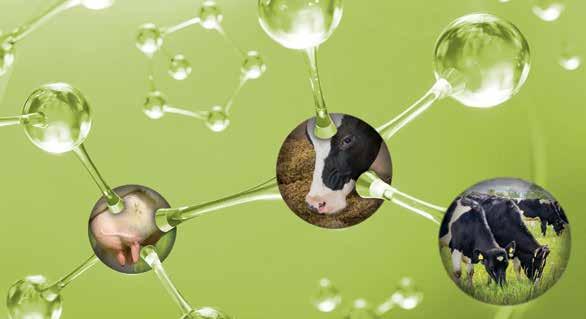
Director Zahra Champion says that addressing the use of biotech will unlock enormous benefits to ensure a better tomorrow.
Announced by Judith Collins, National proposes to end the ‘effective ban’ on Gene Editing (GE) and Genetic Modification (GM) in New Zealand. It will also create a dedicated regulator to ensure safe and ethical use of biotechnology and streamline approvals for trials and use of non-GE/ GM technology in line with other OECD countries.
“Gene technology is used around the world to treat cardiovascular diseases, cancer and blood disorders,” Collins says. “It has been used in New Zealand laboratories since
the 1970s but our restrictive rules put in place in 2003 make research outside the lab all but impossible. This means our scientists have had to head overseas to conduct further research.”
GM technology and policy has had a controversial political history in NZ over the past 20 years. Just ahead of the 2002 election, Nicky Hager published the book Seeds of Distrust, alleging that in 2000 government officials had covered up an accidental release of GM corn into the country. Combined with campaigning from activist group Mothers Against Genetic Engineering, this made GE a major issue in the 2002 election.
Under New Zealand law, a GMO is defined as anything that has had its genes or genetic materials modified by in vitro techniques, such as test tubes, or that is inherited or otherwise derived from genetic material modified by in vitro techniques.
It is illegal to import GM seeds and nursery stock into New Zealand without approval from the Environmental Protection Authority, with no GM seeds or nursery stock approved.
Collins says National understood that there is some public concern around the efficacy of certain GM and GE applications being released into the environment, particularly regarding
Māori spiritual beliefs of mauri (life force).
“But she stresses that National’s biotechnology policy will include multiple reviews “dedicated to ensuring scientific, ethical, social, cultural and economic consequences of research and applications of gene editing or modification are considered for every application”.
BioTech NZ director Zahra Champion says

modern biotechnology research can add value to the products and processes of many New Zealand industries – such as agriculture and forestry. She adds that the country’s world-class expertise and exceptional strengths in key industries give it a unique opportunity to leverage biotech innovations to drive growth, address climate challenges and create a more prosperous
and healthy future.
“The biotech sector will aid in the development of new products and services,” she claims. “We are seeing this in the area of immunotherapy and vaccine production and clinical trials… We have a vibrant and growing community that is already taking on the world and attracting international funding and talent.”
Rural News has previ-
ously reported on a high metabolisable energy ryegrass from AgResearch that reduced methane emissions in cattle by 23%, along with being drought resistant and faster growing. However, development has been slow due to NZ laws prohibiting it from being grown here, necessitating trials overseas.
Rural News asked the Ministry for Environment for comment. In a statement, Minister David Parker said that the Government recognised that technology had moved on since the rules were put into place and was open to change.
“For example, we are looking at whether there are any unnecessarily restrictive rules around GMO’s within contained laboratory settings and biomedical therapies.
“However, it is important we take a careful approach to get the balance right for the security of our exports and economy.”
ZESPRI’S LATEST kiwifruit to hit overseas and domestic markets, RubyRed, has become the beacon that lights up the start of the kiwifruit season.
According to Zespri chief executive Dan Mathieson, RubyRed has gone really well in the market because it’s such a “new, beautiful looking, vibrant, tasty fruit”. He says it’s generating a lot of excitement.
“This is especially so with young kids because they love the taste and also they love the red colour.”
Mathieson says, from Zespri’s perspective, because RubyRed is the first fruit to go on sale, it’s the signal that the kiwifruit harvest is underway and paves the way for Green and then SunGold varieties which follow.
He told Rural News that for orchardists, RubyRed is a new fruit and many are still learning how to get the best yields and quality from the fruit.
For most primary sectors, China is not an easy market to operate in at present with the Covid lockdowns causing
a slowdown with their economy, which in turn is still having an impact on consumer confidence. But Mathieson says this is not the case with kiwifruit.
“We are the reverse to that and we have seen quite strong demand and a strong rebound for us,” he explains. “The type of consumers Zespri are looking at tend to be in the middle upper consumer bracket and they want more healthy nutritious food and our kiwifruit fits in perfectly with that.”
Also, in regard to China, Mathieson says production of illegal fruit grown there is down, partly due to a tough growing season there, which has been hot and also the impact of an outbreak of PSA. He adds that some rule changes by the Chinese government, which is limiting the areas where kiwifruit can be grown, is working in NZ’s favour.
Meanwhile, Mathieson says some law changes have made it easier for NZ to take legal action against orchardists there who are illegally growing kiwifruit.
– Peter BurkeMinister David Parker said that the Government recognised that technology had moved on since the rules were put into place and was open to change.Blast from the past: 20 years ago campaigning from activist groups like Mothers Against Genetic Engineering made GE a major controversial issue in NZ.
INTEREST IN New Zealand’s longest trail is tracking up.

Last year, 800 hikers walked the Te Araroa Trail from Cape Reinga to Bluff; this year 2400 people are registered for the 3000km trek.
To ensure a beneficial experience for all, the Te Araroa Trust continues to foster its relationships with farmers and landowners while educating its hikers.
Trail manager Daniel Radford says that in the past, the Te Araroa Trust struggled to look after their relationships with landowners due to underresourcing of staff and the habits of a few wayward trampers.

“We bear the blame for that. It’s a long trail and the Trust has always had minimum resourcing,” he explains.
“We’re trying very hard now, especially with more resources and more regional trust involvement, to foster those relationships because they are incredibly important to us.
“We are incredibly grateful for the access that we do get.”
Hiker Sam Tipping completed the trail in April this year and knows of instances where trampers have left farm-owned huts in a mess.
This disregard of ‘leave no trace’ has forced farmers to alter the trail, bypassing huts, and crucial checkpoints.
“Some people can’t distinguish the difference between a private and a DOC hut,” Tipping says.
“Some people don’t pay for a backcountry hut pass or don’t pay the encouraged donation. But from my experience, people are generally respectful.”
In the early days of the Trust, access agreements were signed by both the Trust and landowners, allowing the Trust access

for Te Araroa. Over time, these agreements have expired, resulting in Te Araroa’s loss of access, which some landowners chose not to renew.
Radford said this could be for personal reasons, but he also recognises that some people have a doubtful view on trampers. Te Araroa Trust is looking to change their view.





“We put a lot of effort into educating our walkers and we will be putting in a lot of effort in the next season, so our walkers understand the significance of what they’re walking through.”
Previous owner of Mesopotamia Station Laurie Prouting is also aware of the doubtful view on trampers.
“It can become a bit onerous,” he explains. “If the river is in flood, meaning the bush stream itself, they tend to strike that as a barrier…so they sit there and cry for help.”
New owners Malcolm and Sue Prouting often come to the rescue.
“Malcolm runs a helicopter business, so he doesn’t mind – so long as they’re paying for it.”
Despite providing helicopter transport, Prouting says the service has become another part of regular station work.
“We’ve got tasks that we do, and we just get used to it and get on with it because nobody wants somebody lost, hurt or missing.”
Radford says it is the goodwill of farmers like the Proutings who contribute to the experience of the trail.
“It’s the people you get to meet and the manaakitanga, the people looking after you as you go,” he adds. “That’s quite a special thing to be a part of.”
Radford plans to continue meeting with the communities involved in the trail to ensure a positive experience for all on



FRESHWATER FARM plans to help farmers improve local waterways will be progressively phased in across the country.
Agriculture Minister Damien O’Connor and Environment Minister David Parker say Cabinet has confirmed the freshwater farm plan regulations, which are part of the Government’s Essential Freshwater package, to improve freshwater health and management.
O’Connor says freshwater farm plans will be phased in region by region over the coming years to ensure they are practical, starting in parts of the Waikato and Southland on August 1. The rollout period for the remaining regions will be outlined before the end of this year.
O’Connor claims this
provides farmers certainty and they will have 18 months to prepare their first plan after the regulations take effect in their region. He says the freshwater farm plans will allow for flexibility and variability within farming systems, rather than a
one size fits all approach.
“The Government has listened to and acted on the concerns of the sector around how to make a system workable on the ground and roll it out in a way that gives farmers time to make the

necessary preparations.”
He says demonstrating our sustainability credentials is critical for future export growth and this is a key part of that story.
Over time farmers and growers will need a freshwater farm plan if

they have 20 hectares or more in arable or pastoral or combined use, or five hectares in horticultural use. Parker says industry groups such as Fonterra and Beef+Lamb New Zealand, along with regional councils, have led the
way in encouraging the development of freshwater farm plans. He says the freshwater farm plan regulations are another step in the progression towards widespread adoption of these plans that will, over time, lift
the quality of our rural waterways.
“The Government is investing $22.5 million from the Essential Freshwater fund to help farmers, growers and advisors develop the plans,” he says
“The Government has listened to and acted on the concerns of the sector around how to make a system workable on the ground and roll it out in a way that gives farmers time to make the necessary preparations.”Farmers and growers will need a freshwater farm plan if they have 20 hectares or more in arable or pastoral use and five hectares or more in horticultural use.
THE MEDIUM term prospects for the meat and wool sector are gloomy based on the numbers in the latest MPI Situation and Outlook for Primary Industries (SOPI) report.

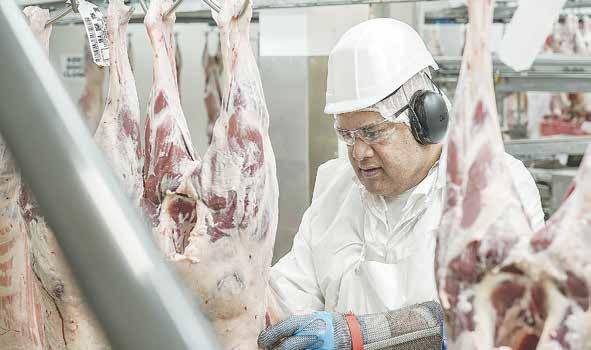
It says revenue for the sector is expected to decrease by 3% to $11.9 billion for the year to 30 June 2023, drop again in 2024 and only get back to the 2023 level by 2027. The report puts this decline down to the global cost of living crisis, which is straining household budgets and the Covid challenges in China where consumer confidence is down.
The report notes that after a strong 2021/22 season, the average farm profit before tax for 2022/23 for all classes of
sheep and beef farms is expected to fall by a massive 31% to $146,300. It says this fall in profit is due to the increase in farm input costs and weaker meat export prices.
Inflation is identified as another factor that is putting downward pressure on sheep and beef farm earnings. In response, the SOPI report points out that farmers are applying less fertiliser, planting fewer crops and delaying maintenance. Fertiliser costs have risen by 15% and debt servicing by 51%.
Stock numbers show a slight decline in both beef cattle and breeding ewe numbers and it is forecast that this trend will continue through to 2027.
While beef export prices fell by 3% in 2022/23, the news is a bit better going forward
with a prediction that global beef supplies will tighten as the USA beef herd contracts in size, but the SOPI report says the market will be more volatile.
Lamb export revenue is expected to fall
by 8% to $3.3 billion in 2022/23, while mutton revenue will be down by 19% to $570 million. The downward trend for lamb exports is expected to continue this season, with lamb dropping by 11% and mutton by 21%.
The reason for this drop in export returns, according to the SOPI report, is due to the lockdowns and slow economic growth in China and high food inflation weakening demand in the UK.
In the 2022/23 year, wool prices dropped slightly but they are expected to pick up over the next few years to be about the same as they were in 2022. The SOPI report notes that wool prices will continue to
recover – but only gradually. It also notes that the extreme weather in many regions delayed shearing, with the resulting wool clip quality worse than it might have been. However, it points out that farmers had little option but to shear their sheep or suffer animal welfare issues.
While the numbers may not look good, it can be argued that farmers did an amazing job considering the raft of challenges that they have faced in the past year. Some on the East Coast of the North Island are still dealing with major on farm problems caused by cyclones and storms. MPI director general, Ray Smith, says the sector has done a great job in navigating these challenges and notes their commitment to fuelling NZ’s prosperity.


Every sheep farm is unique, so when it comes to vaccination, you need a programme that fits with how you want to farm.
NILVAX is the only pre-lamb vaccine that provides up to 4 months protection for lambs. This gives you the flexibility to vaccinate your ewes earlier to avoid sleepy sickness*, or vaccinate your lambs later due to the longer duration of protection provided via their mother’s colostrum.



MULTINE gives you multiple options for supplementation of Vitamin B12 or selenium in combination with New Zealand farmers favourite 5-in-1. This means you can get everything you need and nothing you don’t.
NILVAX and MULTINE. Two tried and proven pre-lamb vaccine options made right here in New Zealand, that give you flexibility and effectiveness for your farm. Visit sheepvax.co.nz to find out more.

NEW ZEALAND’S economy recently entered a technical recession but any hopes for a quick bounce-back looks unlikely – especially as the country’s all-important primary sector faces tougher times.
According to the latest Ministry for Primary Industries (MPI) Situation and Outlook for Primary Industries (SOPI) report, medium term prospects for the meat and wool sector are gloomy.
It says revenue for the sector is expected to decrease by 3% to $11.9 billion for the year to 30 June 2023, drop again in 2024 and only get back to the 2023 level by 2027.
The report notes that after a strong 2021/22 season, the average farm profit before tax for 2022/23 for all classes of sheep and beef farms is expected to fall by a massive 31% to $146,300. This fall in profit is due to the increase in farm input costs and weaker meat export prices.

Inflation is identified as a key factor putting downward pressure on sheep and beef farm earnings. In response, farmers are applying less fertiliser, planting fewer crops, and delaying maintenance. Fertiliser costs have risen by 15% and debt servicing by 51%.
While beef export prices fell by 3% in 2023/23, the news is a bit better going forward with a prediction that global beef supplies will tighten as the US beef herd contracts in size.
Lamb export revenue is expected to fall by 8% to $3.3 billion in 2022/23, while mutton revenue will be down by 19% to $570 million. The downward trend for lamb exports is expected to continue this season, dropping by 11% and mutton by 21%.
Meanwhile, in the dairy sector the average forecast payout for the coming season is around $8/kgMS. While this may look healthy at first blush, when you consider that dairy farm costs are forecast to be around $8.96kg/ MS, it means there will be very little – if any cream – for dairy farmers this year.
Overall, it looks like the farming sector is in for a ‘batten down the hatches’ period, where farmers will be minimising costs and watching their spending.
For a country so heavily reliant on a prosperous primary sector for its wealth and wellbeing, we look to have some dark clouds looming on the economic front.
TO ALL FARMERS, FOR ALL FARMERS
HEAD OFFICE POSTAL ADDRESS: PO Box 331100, Takapuna, Auckland 0740 Phone 09-307 0399

PUBLISHER: Brian Hight Ph 09 307 0399
GENERAL MANAGER: Adam Fricker Ph 021-842 226
CONSULTING EDITOR: David Anderson Ph 09 307 0399 davida@ruralnews.co.nz
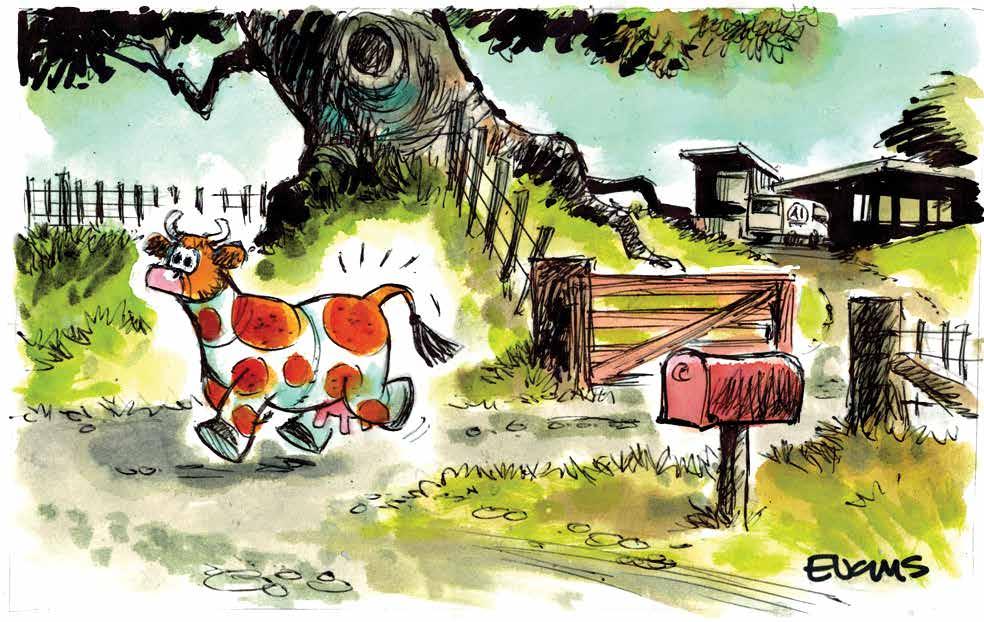

“I know we got good video of how the farmer treats his cows, but I wish we hadn’t turned up on the same day as the AI guy!”
Your old mate reckons there is no mystery why Newsroom journalist and bicycle-riding, whinging pom Rod Oram and climate catastrophic recently wrote a scathing article criticising the Nats’ new ag emissions policy, which was widely circled by Government ministers and Labour party apologists. One notes that Oram’s employer – the Newsroom website – has been a huge beneficiary of the Labour Government’s controversial $55 million (Public Information Journalism Fund (PIJF). Over the six rounds of the PIJF funding, Newsroom took $2,377,356 in taxpayer handouts – over 4% of the total fund. With some media outfits sticking their noses so deeply into this dodgy trough of state funding, it’s no wonder the public are losing trust in these media outlets, especially when they cuddle up so closely to the Government so they can suckle from the taxpayer teat.
The Hound was flabbergasted at the over-the-top censoring actions of the National Fieldays lackeys at this year’s event. Rural ginger group Groundswell – who had paid big money for a stand to exhibit at this year’s Fieldays – were stopped by organisers from selling its signature golf balls featuring the faces of the Prime Minister, Agriculture Minister, Climate Change Minister, and Environment Minister. Apparently, Groundswell were narked on by Labour supporters. The Fieldays organisers then – acting like a bunch of government toadies and stormtroopers – acquiesced to this complaint and forced Groundswell to stop selling the ‘offending’ golf balls. However, the censure move backfired on both Fieldays organisers and the Labour party hacks with various news outlets, social media platforms, and even the 6pm news reporting on the over-the-top reaction.
PRODUCTION: Dave Ferguson Ph 027 272 5372 davef@ruralnews.co.nz
Becky Williams Ph 021 100 4381 beckyw@ruralnews.co.nz
REPORTERS: Sudesh Kissun Ph 021 963 177 sudeshk@ruralnews.co.nz
Peter Burke Ph 021 224 2184 peterb@ruralnews.co.nz
MACHINERY EDITOR: Mark Daniel Ph 021 906 723 markd@ruralnews.co.nz
Meanwhile, speaking of Groundswell, this old mutt understands that the leaders of rural lobby group and fringe political party Democracy NZ recently met up in a café in Gore for a clandestine catch up. This was all before the major meltdown in the Democracy NZ political movement last month, where five of its 10 selected candidates resigned en masse. This included Waikato candidate Steven Cranston, who was the former ag emissions spokesman for Groundswell – before he jumped on the Democracy NZ crazy wagon. Your old mate suggests that Groundswell should steer clear of having such a close association with a fringe political outfit like Democracy NZ or they are in danger of being labelled as associating political crazies and burning off much of the goodwill it has built up in rural NZ.
AUCKLAND SALES REPRESENTATIVE: Stephen Pollard Ph 021 963 166 stephenp@ruralnews.co.nz
WAIKATO SALES REPRESENTATIVE: Lisa Wise Ph 027 369 9218 lisaw@ruralnews.co.nz
PRINTED BY INKWISE DISTRIBUTED BY REACHMEDIA
Your canine crusader was amused to read recently about how a celebrity chef at a Perth restaurant has banned vegans from his establishment. John Mountain, head chef and owner at Fyre Restaurant in the city’s northern suburbs, said that that all vegans “are now banned” from his restaurant. Apparently, the ‘beef’ with non-meat eaters began when an unnamed vegan customer was served an expensive “bowl of vegetables” after she requested a vegan meal. She also complained that the lack of plant-based meals showcased the chef’s shortcomings. However, Mountain was having none of the herbivore’s hypocrisy, posting on social media, “you and all your vegan mates can all go and enjoy your dishes in another venue. You are now banned”.
“F**k vegans,” he added angrily. “They can f**k off.”
WELLINGTON SALES REPRESENTATIVE: Ron Mackay Ph 021 453 914 ronm@ruralnews.co.nz
SOUTH ISLAND SALES REPRESENTATIVE: Kaye Sutherland Ph 021 221 1994 kayes@ruralnews.co.nz
DIGITAL STRATEGIST: Jessica Marshall Ph 021 0232 6446
IT’S NOT regulation that’s the major issue for New Zealand’s farmers.

Rather, it is the hasty implementation of illconceived rules that are strangling the industry, as burdensome red tape intertwines with unforeseen repercussions.
Uncertainty stalks the agricultural sector – and that slows investment decisions, particularly in an election year. You see things like the proposal for the trust tax rate shooting up to 39% and it comes out of the blue, with no discussion, no preamble. The smart money won’t touch that until after the election as it is probably not a well thought out policy, but something on the spur of the moment.
Then there’s the carbon price, which didn’t clear the recent auction, leaving the Government short of half a billion dollars. This signifies a lack of confidence and investors are apprehensive that the Government might abandon its ambitious environmental objectives. Meanwhile, the Primary Sector Climate Action Partnership, known as He Waka Eke Noa, is in a precarious state due to ongoing political indecision. The plan’s future ranges from being on life support to completely abandoned, leaving it in limbo.
Then there is the increased regulation on banks; regulations don’t come cheap for those who must comply. When those regulations are on the cards but not yet in law, it creates uncertainty. Uncertainty holds everything up and it hangs on how the election falls.
There are unexpected consequences: While these new regulations may have been designed to make banks fairer and more accountable, while protecting their balance sheets, they will actually have a perverse, opposite effect.
You don’t get more competition. It becomes
harder for agribusiness to get finance as it is more complex to give it to farmers – so the banks focus on home loans as it is easier. Extra regulations increase the barrier to entry, protecting existing operators – so you get a poorer outcome for consumers and the economy.
The Reserve Bank is a good example of over-regulation. I can confidently say none of our agribusiness clients are excited about their relationship with the bank.
Meanwhile, some regulation is arguably redundant. The dairy industry, for example, must comply with the demands of their big buyers. These have carbon emission plans which must be met by Fonterra when negotiating commercial terms. Those requirements are passed on to the farmer.
That’s the way it should work, through the force of the market with willing participants – rather than someone from Wellington imposing a regulation on the farmer.
While uncertainty isn’t the same thing as calamity, bankruptcy is not stalking the land just yet. There is a capital and confidence shortage leaving the sector gun shy and weary.
Regulations on the economy have a profound impact and influence on a nation’s prosperity. If we look at Australia, it becomes apparent why they are able to offer higher salaries to their teachers and nurses compared to New Zealand—they simply have the means to do so.
Australia’s ability to generate $140 billion in revenue from coal exports to India plays a significant role in their financial capacity. On the other hand, New Zealand imposes bans on coal, oil, and gas exports, resulting in lower earnings and subsequently limiting our budget for public services.
It’s important to remember that there
are no free lunches in economics.
The notion of increasing taxes is also convoluted, as it involves taxing a diminishing capital base. We must acknowledge the
existence of economic trade-offs and understand that choices always come with consequences.
• Hayden Dillon is Findex’s Waikato managing partner
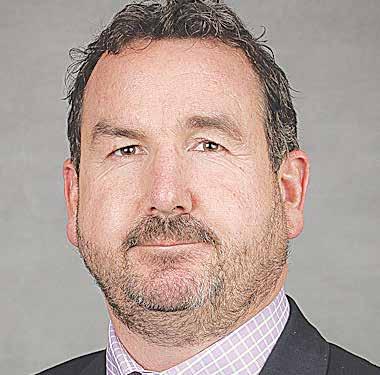
@rural_news facebook com/ruralnews

RIGHT NOW, rural New Zealand needs strong, decisive leadership on climate change matters.
There is a dangerous vacuum. Who will stand up for truth, facts, latest science and defend the interests of farmers, their

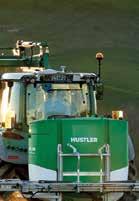
families and rural communities? The need is urgent.
The HWEN exercise was a disaster, other than buying time. Our present leadership is divided and, in most cases, just plain wrong on the question of ruminant methane’s impact on the




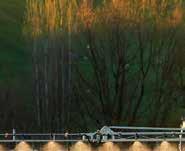
atmosphere.
The notion that the science is ever settled is a pernicious lie and




should be fought with all our might. For example, in the last IPCC Report – AR6 – the scientists




backed off the previously announced, extreme RCP8.5 scenario having once called it “business as usual”. It was gone from their Expert Review report. The “settled” science was quietly changed and updated.
The same IPCC Report admitted that
methane’s warming potential had been overstated by 400% and was now a MASSIVELY different issue for countries like New Zealand, where farmers have been accused of being responsible for nearly half of the nation’s emissions.
Where was the Prime Minister announcing with elation that New Zealand’s emissions profile had been over-stated and was now lowered dramatically, and our farming “problem” had been radically reduced?
Where was Climate Change Minister James Shaw crowing that we had won a huge victory for common sense?
Where were our farming leaders shouting triumphantly that farmers were being saved millions of dollars because rural New Zealand’s emissions were slashed by the latest, current science from ‘nearly half’ to just 10%?
IPCC lead authors, and the AR6 has put beyond any doubt that the GWP100 formula (which had always been used in New Zealand to get to the “nearly 50%”) was now off the table, once and for all.
Page 1016 of Chapter 7 of AR6 said:

“…expressing methane emissions as CO2 equivalent of 28, overstates the effect on global surface temperature by a factor of 3-4”.
That is what happens in science; it evolves under challenge. It is refined, changed, disputed. It is never ‘settled’.
Now, even more recent science is revealing that the role of methane is even more miniscule and irrelevant. Leading
climate scientists Wijngaarden and Happer have carried out research based on real air (a first, as all previous experiments have been in dry air in a laboratory) that shows methane is only as effective as CO2 in absorbing out-going radiation – not 28 times stronger as previously believed. This research is strongly supported by Sheahen, May, Allison, et al.
These findings show methane can only absorb in one very narrow band on the electro-magnetic spectrum in a space that is dominated by water vapour. This new uncontested science shows water vapour can be anywhere from 6000 to 22,000 times more dominant than methane, making methane’s contribution to warming insignificant and totally inadequate to attract a tax of any sort.
Where is the farming leader who will get their head around such science and pull the farming community together with integrity, unity and strength?
Farmers deserve better. There urgently needs to be a position built, bringing together farmers from the grass fed-dairy and beef farming countries that stands up for the latest science and demands the IPCC recognise the facts.
The National and ACT parties have committed to a “science-based solution”. They now have it. Let’s see them deliver. Truth must prevail. Current science must prevail.

• Owen Jennings is former National President of Federated Farmers and






farming couple Bridget Banks and Chris Pennell are focused on developing a really high quality beef herd.
They believe taking part in the Informing New Zealand Beef (INZB) programme is a way to get where they want to be, faster.

The couple farm beef and sheep in a breeding and finishing operation at Ōmihi in the Hurunui district in Canterbury. They are among the latest group of commercial beef farmers selected for INZB’s Next Generation Herds initiative.

She says they are also looking forward to benchmarking their performance against other commercial beef herds in the INZB programme.”
The seven-year partnership between B+LNZ,


the New Zealand Meat Board and the Ministry for Primary Industries, aims to boost the beef sector’s profits by $460m over the next 25 years.
It is focused on increasing the uptake of genetics in the beef industry. The four main components are building a genetic evaluation and data infrastructure, progeny test herds, developing breeding objectives and indexes and developing new data sources.
Commercial farms play an important role in the programme. By recording data that can be incorporated into breeding value prediction, they will provide increased linkages throughout the beef industry and contribute to genetic evaluations. This will enable increased accuracy with
which breeding values, or genetic merit, can be estimated.

With a family farming history in Canterbury that began in 1882, Banks was raised on a farm.

Eight years ago, she and Pennell decided to move to Omihi with their young family, to see how they would adapt to farming. They took to it with a passion.

Banks’ family had purchased the Spurtleton Downs property almost 30 years ago. Two years ago, Bridget and Chris purchased an additional 245 hectares together with parents, Jim and Therese Banks.
“We are now running a combined 800 hectares with just under 120 hectares able to be irrigated,” Banks explains.
“It’s a well-balanced property: 25% mostly pretty easy hill, 25% rolling downs and the balance flatish. We’re running 4000 Romney type breeding ewes, plus we aim for around 150 breeding cattle – both Angus and Hereford.”
Both sheep and cattle are typically finished on the property and each year they also share farm


around 500 merinos.
Banks says the requirements for data collection for the INZB programme are straightforward.
“It’s already started. At cow and heifer scanning we asked the vet to record an accurate foetal age rather than just ‘lates’, which is what we used to do.
“That is a workaround so that we don’t have to tag calves at birth for the programme, which is when we will be busy with lambing,” she explains.
“We will need to take samples of DNA from all our bulls and breeding cows - which we will do soon - and then later their calves, to match the calf to the cow and the sire through genotyping.”
They will then record

calf growth rates at specific key intervals, along with body condition scoring the cow.

“We’ll also score calf docility, as well as if calving assistance was required, using a predetermined scale.”
The couple has also recently been considering whether artificial insemination is a viable option for the farm and feel this may work well within the programme they are undertaking.



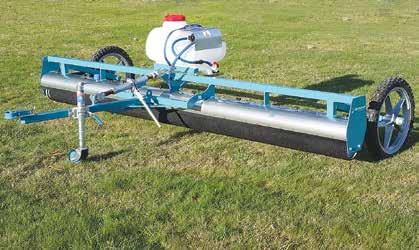
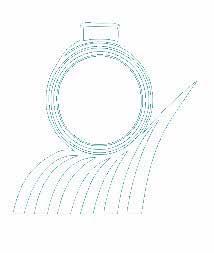
She sees the programme as critical to unlocking the significant potential for genetic gains within the beef industry.
“Having commercial farmers involved in this programme helps assessment of actual on-thefarm performance. More data gives more information to the industry as a whole.”

REDUCED INPUT costs and nitrogen fertiliser use, along with improved environmental outcomes, are key benefits of a precision agriculture project designed to help farmers meet tough nitrate caps while maintaining their viability.
As part of this project, farmers like Roscoe Taggart are using innovation to demonstrate productivity and environmental benefits to their neighbours in the region and beyond.
Taggart says, over the last two years on his family’s 730 hectare arable and sheep farm in Cust, North Canterbury, he has achieved greater efficiency via the use of a new Yara N sensor during a Next Generation Farming project.
Waimakariri Landcare Trust (WLT) and Waimakariri Irrigation Limited
(WIL) have partnered with the Ministry for Primary Industries (MPI) for the project, with support from MPI’s Sustainable Food and Fibre Futures fund – along with Environment Canterbury, Ballance, and DairyNZ.
As the harvest season draws to a close, Taggart says this harvest has been a mixed bag due to wet weather conditions. However, his new maize for seed and evening primrose crops have provided positive results.

“At the beginning of harvest, we had really good results. Unfortunately, then the tap just turned on and we had huge amounts of rain coming through at the wrong time which cost quite a bit in terms of yield for the later crops,” he explains.
“We have just harvested our evening
primrose and it’s been surprising to see how well it has done, especially for a paddock that was pretty wet early on. We’ve exceeded our target for the seed yield off it.”
Taggart tried maize for grain for the first time this year and is pleased
with how the crop went. He will plant it again next season, as it works well in his crop rotation and returns potassium to the soil.
“It’s a crop with nice deep roots so it breaks up the soil nicely and while it does require a bit of fert up front you end up
returning a lot of K to the soil instead of removing it which is what happens if you grow it for silage instead of for grain.”
He adds that it also works well because they harvest it in early June.
“It extends the season out further, which means we are harvesting from
For Taggart, one of the most important precision agriculture tools is his Yara N sensor, which has allowed him to reduce his use of nitrogen fertiliser by approximately 80 kilograms this season.
“We have saved around three units of N per tonne of grain so on a twelve-tonne paddock you are saving 36 units of N per hectare, which gives us an overall saving of 80 kilograms of urea for the season,” he explains.
“It’s been a game changer for us, especially using the N sensor in absolute mode, where the N sensor decides how much fertiliser to apply. We’ll keep using it in absolute mode because it is minimising our N use which is important not just in terms of cost sav-
ings but also environmental impact.”
One thing that has surprised him over the last two years during the N sensor trial is the amount of variability he has throughout his farm.
“There’s more variation in our relatively flat, uniform farm that I ever could have imagined and looking at the maps that come out of the N sensor there’s no consistency in paddocks that before using the sensor I would have thought of as very consistent.”
Taggart sees precision agriculture as critical in ensuring the future viability of farming in New Zealand.
“Precision ag makes your farm more efficient and there are some real social, environmental, and economic benefits that you don’t realise until you get into this.”


EWES’ FEEDING
requirements increase in the latter stages of pregnancy and even more so during lactation.
Multiple-bearing ewes need more feed as lambing approaches to prevent them losing condition.
Protein supply via a ewe’s milk is the crucial element in providing a good start for lamb growth. Ensuring good ewe nutrition to aid ewe milking is critical, particularly in late pregnancy and early lactation.
Lambs eat more grass as they age and twins, particularly, have to start eating pasture sooner than singles.
Lambs born to wellfed ewes in late pregnancy have more energy stored as fat reserves and are better able to survive times of reduced feed –such as during windy, wet conditions or extreme weather. They also maintain their suckling drive longer than those whose mothers were poorly fed.
Ewe lambs born to ewes well fed during pregnancy have better
lifetime reproductive performance than those from poorly fed mothers.
Excessive under nutrition before lambing can lead to:
• Sub-optimum levels of colostrum production
• Delayed milk let down
• Lower peak and total milk production
• Low lamb birth weights
• Poorly developed maternal instinct
• Impaired lamb bonding behaviour
• Impaired thermoregulatory capability of lambs
• Metabolic diseases in ewes.
All these can lead to reduced lamb survival and lower lamb weaning weights. Try to feed multiples at an appropriate feeding level above maintenance in the last five weeks of pregnancy in relation to number of lambs being carried.
It’s recommended rotations are kept going as long as possible, but reducing mob size and speeding up the rotations closer to lambing is an available option to reduce grazing pressure.
IDEALLY LAMBING should begin at the same time as the annual increase in spring pasture production.
However, a high proportion of New Zealand farmers lamb too early for their feed supply to achieve high growth rates.
Aligning lambing dates with the spring flush almost invariably results in similar weaning weights and dates as lambing before the flush. Ewes also maintain better condition and, because pasture growth isn’t restricted by low leaf area (through over-grazing), pasture growth is optimised through late spring, summer and the rest of the year.
Contrary to popular opinion, earlier lambing does not necessarily produce heavier lamb weaning weights. It is better to lamb later and achieve faster growth rates, than lamb early at the expense of optimal lamb growth. Generally later lambing enhances both lamb growth and ewe condition when pastures can be controlled by cattle grazing or mechanical topping.
– Source B+LNZ
www.ruralnews.co.nz

www.dairynews.co.nz
Lambs born to ewes well fed during pregnancy have better lifetime reproductive performance than those from poorly fed mothers.
• Ensure all calves are fitted with a NAIT tag before they reach 180 days of age.
• Register any fitted NAIT tags within 7 days of tagging.
• All calves must be tagged and registered before their first movement. So, if you are sending them off your location, make sure you meet your NAIT obligations.
• Calves must be NAIT tagged correctly. For more information go to OSPRI.co.nz or 0800 842 463
BACK TO its “normal” mid-June timing, it looked like all the stars were in alignment for the Fieldays at Mystery Creek.
The lack of any Covid restrictions meant that the gates were open not only to locals, but also to overseas visitors.
When the gates finally closed the tale of the tape showed that 105,000 visitors passed through the turnstiles over the four days. Compared to 2019, the last non-Covid affected event, when 128,747 made the trip, this represents a drop of around 18.5%.
As to the event itself, cold starts and sunny days were the order of business, with most visitors just glad to be off the farm and catching up with colleagues and mates.
Indeed, this is probably where Fieldays sits, rather than an event that does business, with the exception of those selling wet weather gear or battery power tools. Although there were reports of some businesses selling larger capital items, such as grassland machinery as we head towards the new season, Fieldays appears to be morphing into more of a PR event for the exhibiting companies.
Some may be reviewing committing a great chunk of their marketing budget to just four days, while still selling over the other 361 days. Others bemoaned the smaller frustrations like Fieldays charging exhibitors an extra $1,340+gst for using caterers that are not on the approved list, or being charged for using coffee beans at their hospitality area that didn’t
Shatter pan layers allowing surface water down through the profile Avoiding ponding & retaining moisture for use in dry periods
• Rugged high tensile blades
• Replacement ripper tine point (pinned on)
• Delta type wings provide increased shatter
• Large diameter skieth leaves clean cut surface
• Skieth cuts surface trash avoiding blade build up
• Optional pipe chutes
come from the approved supplier.
Of course, the tenets of Fieldays were in abundance, with hubs for Health, Innovation, Forestry, Sustainability and Careers, offering checkup, check out, hug trees, save the planet and find that must-have job.

With the General Election just around the corner, the crowd was sprinkled with many red, blue, purple and green windcheaters worn by
standing MPs and campaigners for their cause, typically sporting wide grins and outstretched hands.
Speaking to exhibitors, some were claiming sales on the day, although the majority were suggesting that most potential customers were playing a waiting game, given the constraints of high input costs, a lower milk price for the new season and a potential change of government.
THANKFULLY, NONE of the visitors seemed to be giving MPs too much of a rough ride, as in previous years, although that philosophy was not being extended in reverse. Farmer action group Groundswell, vocal in opposing much of the suggested legislation being drawn up by the Labour-Green Government, were on site and raising funds.
Alongside the T-shirts and baseball caps, they were also offering a sleeve of golf balls imprinted with the faces of Messrs. Hipkins, O’Connor, Parker, and Shaw, with an invitation to “Drive Labour Out”. Unfortunately, this led to one Labour worthy from a nearby site admonishing Groundswell for “inciting violence”.
This was followed up by a visit from Fieldays officials, who insisted the “bad taste” balls be removed from sale. Of course, placing the offending items under the counter meant demand rocketed and the ‘Sold Out’ signs soon went up.
www.james-engineering.co.nz

Standard Subsoiler & Chute
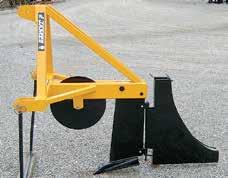
For tractors up to 100hp
Optional sliding back chute can lay up to 40mm alkathene
The Einböck PNEUMATICSTAR is the ideal machine for seeding large areas at very low cost.
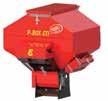


• A pneumatic seed distribution system broadcasts the seeds accurately (up to 6m working width).
• The 4 floating sections with 7mm tines prepare the soil surface and creates a good condition for the germination of the pneumatically delivered seeds.
P-BOX STI
The P-BOX STI pneumatic air seeder is highly accurate for broadcasting seeds like grass or brassicas.
• Plug and play using the Info plug on your tractor (for radar speed and linkage position).

• Easy adjustment from 1 kg to 300 kg / ha.
Super Subsoiler & Chute
For 100 + hp tractors Optional chute lays up to 50mm alkathene CONTACT US FOR YOUR LOCAL
Seed distribution technology at its absolute finest.

ANYONE WHO visited Fieldays this year couldn’t help but notice an aircraft hangar-sized marquee that took up an entire block adjacent to the tractor pulling arena.
Brandt, the John Deere agriculture, construction and forestry dealer, was certainly pushing the boat out for its first time at the event. The company’s aim was to show current and potential customers what it has to offer the New Zealand market.

Originally acquiring the Cervus Group back in October 2021 in its initial move into NZ, this was followed by the purchase of AgroQuip and its depots in January 2023. This means the company now operates from 17 sites in the North Island.
More recently, Brandt has also acquired the assets of Wairarapa Machinery Services Ltd.
Headquartered in Regina, Saskatchewan in Canada, the Brandt operation is multi-faceted, including agriculture, construction and forestry – alongside manufactur-

ing, engineering and positioning – with trucks and trailers also playing a part. One of Canada’s largest privately owned businesses, the Brandt story is certainly one of superlatives.
Company patriarch Gavin Semple was one of six children who grew up on a Saskatchewan cereal farm. After leaving Luther College, he realised that his future was probably off-farm, so he started on a journey to becoming a salesman. Working long hours in a dealership, Semple moved from sales cadet to sales manager, higher management and eventually became the dealership owner.
By 1984, the company had expanded into a business with 60 employees and an annual turnover of Canadian $5m (NZ$6.15m).
In 1991, an opportunity saw Brandt become the John Deere construction and forestry dealers for all of Canada. Over the ensuing 32 years, the company grew and now operates from 135 stores that employs 5000 people. It has a manufacturing division that employs 1500 workers
and cumulatively generates around Canadian $5 billion turnover ($NZ6.1bn).
Looking at the broader picture, the size and scope of the Brandt operation means the company takes around 5% of John Deere’s total agricultural production and a quite staggering 15% of their construction and forestry output.
“I come from a family where my grandfa-
ther said we can’t use the word ‘can’t’ and there were no excuses accepted for not succeeding – a phrase that was passed down to me at the bottom of the food chain,” explains current chief executive Shaun Semple. “If I wanted to eat, I had to get out and earn some business – which often meant making cold calls after 4pm on a Friday afternoon.”
With an expanding New Zealand presence, Semple has visited the country five times, a huge effort, given the constraints placed on travel with Covid.
“In these early days, it is paramount we understand the industries we supply, so I expect our staff to be out in the field, rather than driving a desk at one of our depots,” he says.
“We strive to employ
the best people and realised many years ago that after 5pm we only have a nice building.
We like to invest in our employees, so everyone is part of a profit share scheme, meaning that empowered and committed workers own the business.”
This also means the company has employees who have been with it for more than 20 to 25 years.
Semple says there will
be a need to invest in larger sites with better infrastructure, to allow better work efficiencies, easier access for customers and a great working environment. He adds that there will also be a significant investment in what will likely become a Brandt NZ headquarters, that will become a centre of excellence for parts, service and training and a location for customers to experience the Brandt philosophy up close.
Keen supporters of the communities in which they operate, Brandt has already directed $100,000 to flood affected areas of the East Coast, while also producing help to get machinery up and running quickly.
“In some ways, our approach to sales and support is quite simple: understand the problem, offer a solution and support customers with integrity,” Semple says.
“With three sons and many family members involved in the business, Brandt is committed to creating a new standard for a family business in New Zealand.”
@rural_news facebook com/ruralnews






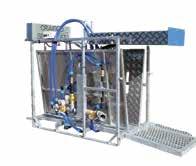










“I

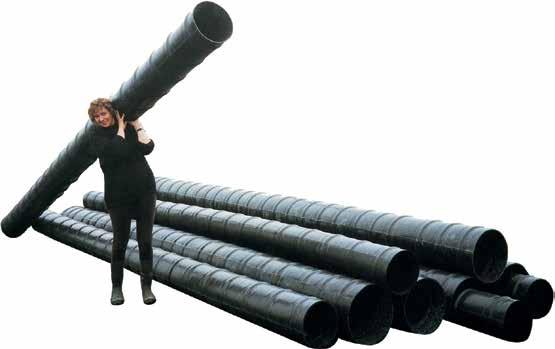
Nelson Bays & Marlborough

Oct 22, 2023 6 Days

Stay in sunny Nelson & Blenheim. Enjoy a Queen Charlotte Sound cruise, lunch & wine taste at Seifried winery, a Greenshell Mussel Cruise. Visit Motueka, Kaiteriteri, Abel Tasman National Park and Pupu Springs. Train to Omaka Aviation Centre.


Forgotten Highway & Taranaki
Nov 7, 2023 + Feb 13, 2024 6 Days
Visit Hobbiton, travel 40km by Rail Cart into the Forgotten World - 10 hand dug tunnels and over 25 bridges. New Plymouth sightseeing tour, cruise aboard Paddle Steamer Waimarie, then Northern Explorer train back to Auckland.



“The









saved our employee from significant injuries.” –Colin van der Geest















With our new whole of farm Sustainable Farm Loan you can accelerate on farm sustainability.
• You have two years to implement the Westpac Sustainable Farm Standard
• Rewards you with a financial incentive on term lending for your farm
• Recognises your existing farm assurance activities. Find out more: westpac.co.nz/sustainable-farm
